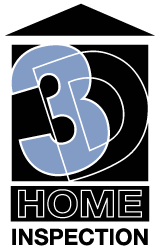Everyone involved in a home inspection wants a successful inspection. Most of the time, buyers are excited about the home. They want it to be safe and sound. Sellers are anxious to complete the sale. Real estate agents want satisfied clients and a completed transaction. The question is: How sellers can best prepare for a home inspection that achieves those goals?
A successful inspection begins with preparation. Real estate agents play a key role in helping sellers prepare for a home inspection. They set the stage by letting the seller know key areas that the inspector will examine. Sometimes the agent already knows about items that may need fixing. In that case, letting the seller know in advance can also speed up the inspection. By understanding the inspector’s needs and objectives, sellers can prepare their home to facilitate a smooth and efficient inspection.
As an experienced home inspector, I have seen many things get in the way of successful inspections. Sometimes, when sellers aren’t prepared, I have to return to complete the inspection. For example, if I can’t view or operate required systems or components, I’ll recommend further evaluation. The following suggestions are designed to help prevent the need for a second visit. Second visits affect everyone’s schedule, delay the buying process and can come with a hefty price tag.
Be prepared for the inspector to view all parts of your house
The inspector will need access to all areas of your house. Don’t forget about the following:
-
- Roof
- Exterior structure
- Foundation
- Garage
- Basement
- Crawl space
- Attic
- Kitchen, including appliances and cabinets
- Bathrooms, including all cabinets
- All living areas
- Laundry area, including appliances
- Closets
- All cabinets
A home inspector will also need to inspect and operate all the systems in your house. Those systems include:
-
- Electrical system, including fuses or circuit breakers
- HVAC (weather permitting)
- Plumbing
The inspector will need to operate all utilities (water, gas, electric) during the inspection. He or she will also inspect related components like furnaces, fireplaces, water heaters and gas heaters. Home inspectors are not responsible for determining why these items are off. They will not turn pilot lights on. Many home inspectors will presume they are not working if they are not lit.
To prepare for a home inspection, clear pathways.
A home inspector will need to be able to reach everything he or she needs to inspect. Inspectors won’t move your belongings out of the way. Don’t forget areas that are behind storage or shelving. Clear any barriers before the inspector arrives. Areas I often find blocked include:
-
- Heating and air conditioning system
- Electric panels (main and sub-panels)
- Water heaters
- Water service entrance (usually near the water meter or well tank)
- Attic
- Access area needs to be wide enough to accommodate a stepladder.
- Small closets in older homes often have clothing and shelving blocking the attic hatch. Clear them out before the inspection.
- Open sealed or locked access hatches.
- Crawl space hatches
- Unlock and unseal the opening prior to the inspection.
- Foundation walls
Remove clothing from the washer and dryer.
The home inspector will need to operate the wash machine and the dryer. Some inspectors remove items before operating the washer or dryer. Others operate the appliances with the clothing inside. Some others will choose not to operate them at all if there are items inside.
Open window treatments.
An inspector can damage closed window treatments during an inspection. Prepare for a home inspection by opening them. This will help prevent damage and speed up the inspection.
Provide any seller disclosures.
Let the inspector know of any agreements that are part of the sale. Those agreements can involve disclosed repairs, adjustments, or “as is” items. The inspector will also need the honest disclosure of any past issues. Those issues include wet basement problems, roof leaks, structural repairs or treatment for pests.
Define things that are off-limits.
Tell the inspector if there is anything that he or she should not operate. Identify anything that shouldn’t be moved. Let him or her know about areas he or she shouldn’t enter. Consider this carefully. If key parts of the house can’t be inspected, it could cause delays or prevent closing the deal.
Prepare for a home inspection by compiling important information.
Collect important information about your house before the inspector arrives. In particular, inspectors will want to know the age of systems and components. Examples include:
- Your home’s roof
- The heating and air conditioning equipment
- Water heaters
Take care of your pets.
The home inspector will need access to your yard for the inspection. Clear out any animal waste. Also, make sure your pet is secured away from the inspection area. However, securing your pet might interfere with the inspection. In that case, find a place for your pet to stay off-property during the inspection.
Want to learn more about how to prepare for a home inspection? Visit our What to Expect When We’re Inspecting info page.
